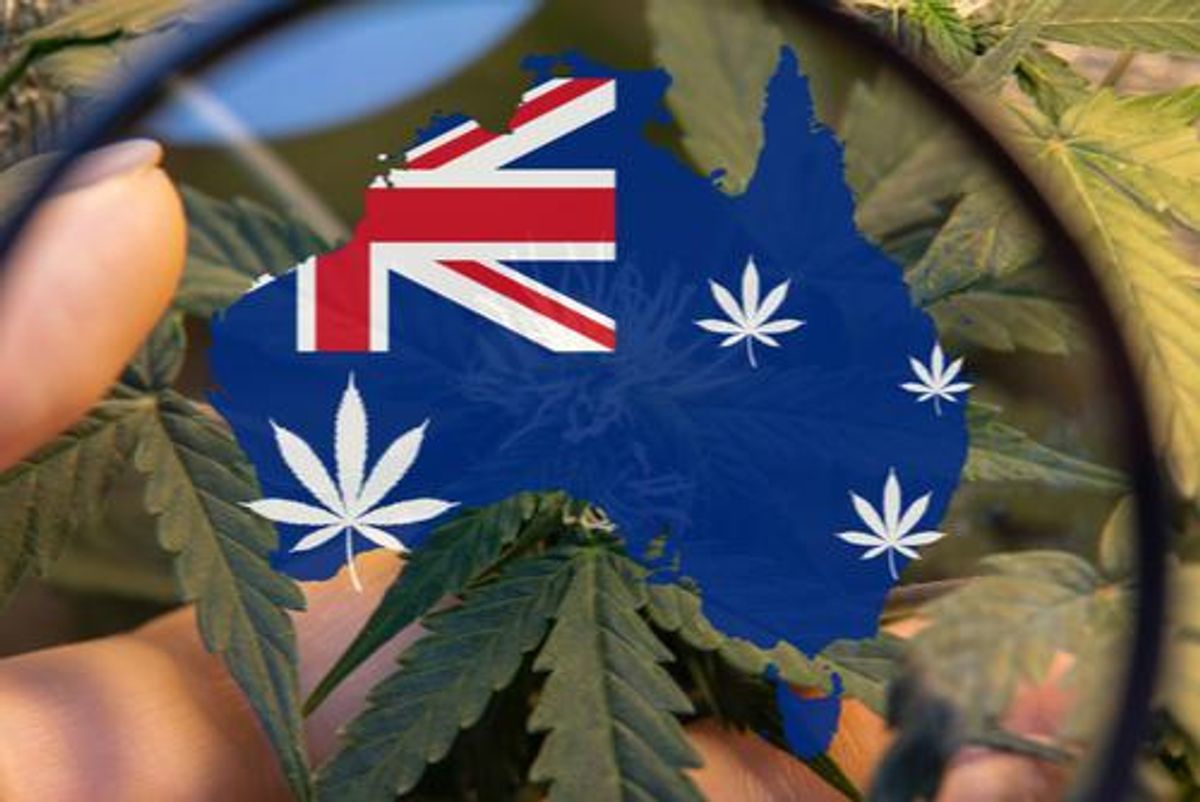What Investors Should Know About CBD in Australia
Interest in CBD in Australia is rising as the country's cannabis industry develops. What should investors know about this growing market?

Over the past years, awareness about the medicinal properties of CBD has been growing. Although Australia's cannabis industry is still young, CBD hasn't escaped market watchers' attention.
CBD is a cannabidiol, meaning it is a compound found in the actual cannabis plant. It has steadily become a favourite in the development of novel products with various health uses, such as topical oils, lotions, and more. Part of its attraction stems from the fact that CBD does not cause a heavy psychoactive effect, unlike THC.
Although still in its infancy, research has shown CBD has anti-inflammatory properties, and offers the promise of more use cases. It is gaining traction as a potential treatment for illnesses and conditions such as anxiety, post-traumatic stress disorder, depression, eating disorders, attention deficit hyperactivity disorder, migraines and some chronic pain disorders, to name just a few.
With so much potential, it's clear why CBD has entered the spotlight. Read on to learn more about the CBD market in Australia, including whether it's legal, how it can be accessed and how big the market is.
Is CBD legal in Australia?
CBD has been legal in Australia since 2015, providing it is at least 98 percent cannabidiol.
The country's CBD rules have changed and loosened over the years, indicating Australia's evolved understanding of the cannabis compound as it relates to common uses.
Previously, anyone wishing to use CBD in Australia had to first have a doctor make an application to the Therapeutic Goods Administration (TGA). A general practitioner could do this, or patients could visit specialised cannabis access clinics to receive help.
However, on February 1, 2021, low-dose CBD products became legal to purchase over the counter. This development came after the TGA approved a scheduling change for the drug, moving it from a Schedule 4 (prescription only) to Schedule 3 (available over the counter at any pharmacy) substance.
Even with this change, Australia still has significant control measures in place for CBD.
First off, CBD products sold over-the-counter must be included on the Australian Register of Therapeutic Goods (ARTG). Another restriction comes in the way of the dosage. CBD products sold over the counter in Australia can't go over 150 milligrams for use per day.
There is also the issue of timing. Despite the change in CBD regulations, Iain McGregor, psychopharmacologist and academic director of the Lambert Initiative for Cannabinoid Therapeutics, told the Guardian he didn't expect to see any CBD products available in Australia until "six to 12 months" after the February rule change. As of August 2022, there are still no CBD products on the ARTG that meet these requirements to be considered Schedule 3.
Australian cannabis research firm FreshLeaf Analytics has concurred with McGregor, indicating that the TGA's standards will be a significant challenge for CBD companies to clear. Various domestic cannabis producers have told investors they are working on meeting the requirements to begin the sale of CBD products.
Ordering CBD oil from another country to be delivered to Australia remains illegal.
How can CBD be accessed in Australia?
As mentioned earlier, methods of accessing CBD in Australia are currently in flux. While over-the-counter purchases will soon be allowed, they're not possible just yet.
For now, those who want to purchase CBD in Australia must go through the process outlined above, since they are still considered Schedule 4 substances. This means one has to find a doctor to make an application to the TGA, or visit a specialised cannabis access clinic.
There are more than 100 unregistered products (oils, capsules, cannabis flower and buccal sprays) with varying CBD and THC content currently available for prescription through the TGA. Nabiximols (trading and sold as Sativex) is the only registered cannabis-based medicine in Australia.
A recent analysis published in the International Journal of Drug Policy shows that CBD-containing products in Australia under the original TGA maximum dose of 150 milligrams per day may not be enough to benefit patients. Research from the Lambert Initiative from the University of Sydney indicates that a CBD dose of 300 to 1,500 milligrams per day is required to see health benefits.
How big is Australia's CBD market?
Australia's CBD market is dominated by a mix of local and international companies. Local players are pushing to increase their consumer base, exports and geographic presence in Australia.
A recent Grand View Research Report puts the size of the country's legal cannabis market at AU$96.56 million in 2021, and it is forecast to boom to AU$790 million by 2030.
It's expected that the changes in CBD access rules mentioned above will have positive impacts for Australian cannabis companies like Cann Group (ASX:CAN), which is working to become a major supplier of cannabis and medical cannabis products, including a CBD pill product called Satipharm.
In addition to Cann Group, other players include Cronos Australia (ASX:CAU), BOD Australia (ASX:BDA), Elixinol Wellness (ASX:EXL,OTCQB:ELLXF), Botanix Pharmaceuticals (ASX:BOT), Althea Group Holdings (ASX:AGH), Medlab Clinical (ASX:MDC), Zelira Therapeutics (ASX:ZLD,OTCQB:ZLDAF), IDT Australia (ASX:IDT) and Little Green Pharma (ASX:LGP).
As Australia's CBD market continues to develop, investors will surely be monitoring it closely, especially as the country comes closer to selling CBD products over the counter.
This is an updated version of an article first published by the Investing News Network in 2021.
Don't forget to follow @INN_Australia for real-time updates!
Securities Disclosure: I, Matthew Flood, hold no direct investment interest in any company mentioned in this article.
- Cannabis in Australia: A New, Budding Market - Investing News ... ›
- Guide to Investing in Cannabis Stocks on the ASX - Investing News ... ›
- | Cannabis Stocks in Australia | INN - Investing News Australia ›
- A Guide to Investing in CBD Stocks on the ASX - Investing News ... ›
